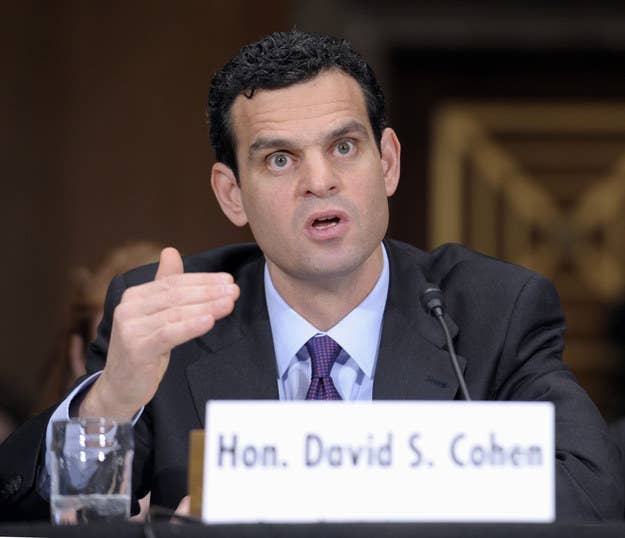
WASHINGTON — The Treasury Department official in charge of shutting off terrorists' access to international finance streams told an audience on Thursday that the Islamic State in Iraq and Syria (ISIS) is in no position to actually pay for the services civilians need in the territory it holds.
David S. Cohen, Under Secretary of Terrorism and Financial Intelligence for the Treasury Department, was speaking before an audience at the Carnegie Endowment for International Peace, in one of the first major addresses from the administration on how ISIS obtains its funding.
Their main sources of income, Cohen explained, "include the sale of stolen oil, the ransoming of kidnap victims, theft and extortion from the people it currently dominates, and, to a lesser extent, donations from supporters outside of Syria and Iraq."
The oil portion alone has earned ISIS approximately $1 million per day from sales since mid-June, Cohen said. That totals at least $140 million in income for the group. On top of that is the $20 million it's made from kidnapping this year, several more million per month on pure extortion, and however much comes from their outside supporters.
While the numbers seem large, especially for a terrorist group, the fact remains that ISIS is far short of having enough money to effectively run a state. "ISIL's territorial ambitions are a financial burden," Cohen said, using the government's preferred acronym for the group. "Attempting to govern the cities, towns and sprawling territory in Iraq and Syria where it currently operates, much less delivering some modicum of services to the millions of people it seeks to subjugate, is expensive."
As a comparison, Cohen cited the current Iraqi budget for the areas where ISIS operates — over $2 billion a year. "That far outstrips ISIL's revenue, and does not include the price-tag for the territory it seeks to dominate in Syria," Cohen added.
Even an optimistic take on ISIS' income so far this year, based on a report in The Guardian earlier this year that the group had at least $875 million in assets, would still not rank it highly among the budgets of established states. That sum would place the Islamic State as a territory in the range of the budgets of the Democratic Republic of the Congo and Afghanistan, two countries not known for their massive expenditures.
"What this means is that ISIL cannot possibly meet the most basic needs of the people it seeks to rule," Cohen said. "In fact, we are already seeing reports of water and electricity shortages in Mosul as ISIL fails to deliver. As we make progress in diminishing ISIL's revenues and its freedom to use them, we will further exploit this vulnerability."
Cohen also listed off the actions the U.S. is taking to shut off ISIS' access to banks and transfer systems, forcing them to use cash in all of their transactions. Individuals and companies caught dealing in oil that ISIS controls will be sanctioned.
But the financial struggle against ISIS won't be won with just financial tools, Cohen concluded. "This is primarily because, given that ISIL is enriching itself locally, cutting off one key source of funds will require dislodging it from territory in which it operates, Cohen said. "But more broadly, even as this vital military campaign progresses, we recognize that the only solutions to the conflicts in Iraq and Syria are political in nature."
